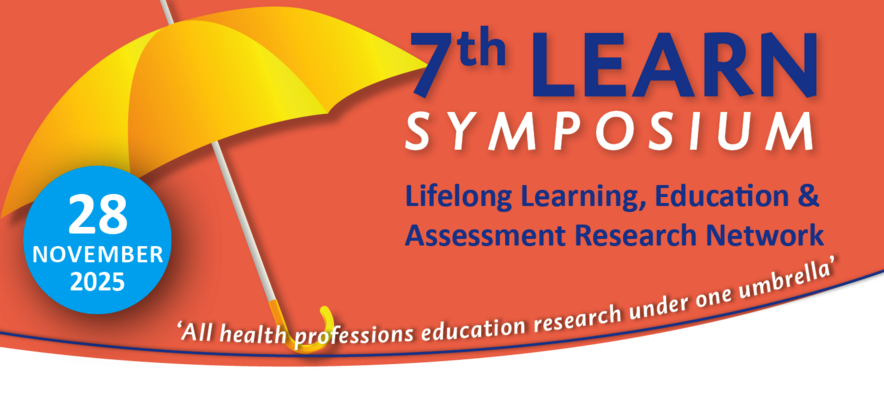Register
Registration for this event is closed.
Registration has been closed by the organizers of this event.
LEARN Symposium 2025
 Registration website for LEARN Symposium 2025
Registration website for LEARN Symposium 2025LEARN Symposium 2025nascholing@umcg.nl
LEARN Symposium 2025nascholing@umcg.nlhttps://www.aanmelder.nl/learn2025umcg/subscribe
2025-11-28
2025-11-28
OfflineEventAttendanceMode
EventScheduled
LEARN Symposium 2025LEARN Symposium 20250.00EUROnlineOnly2019-01-01T00:00:00Z
To be announcedTo be announced